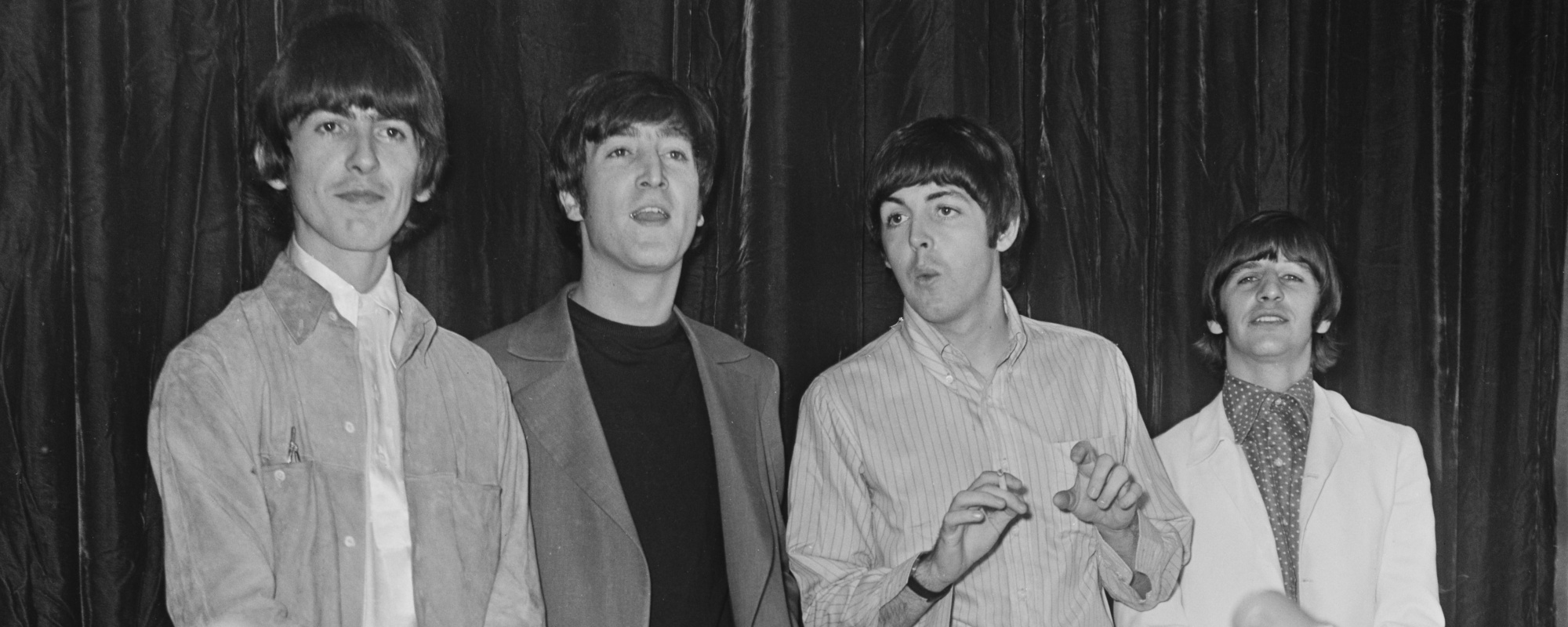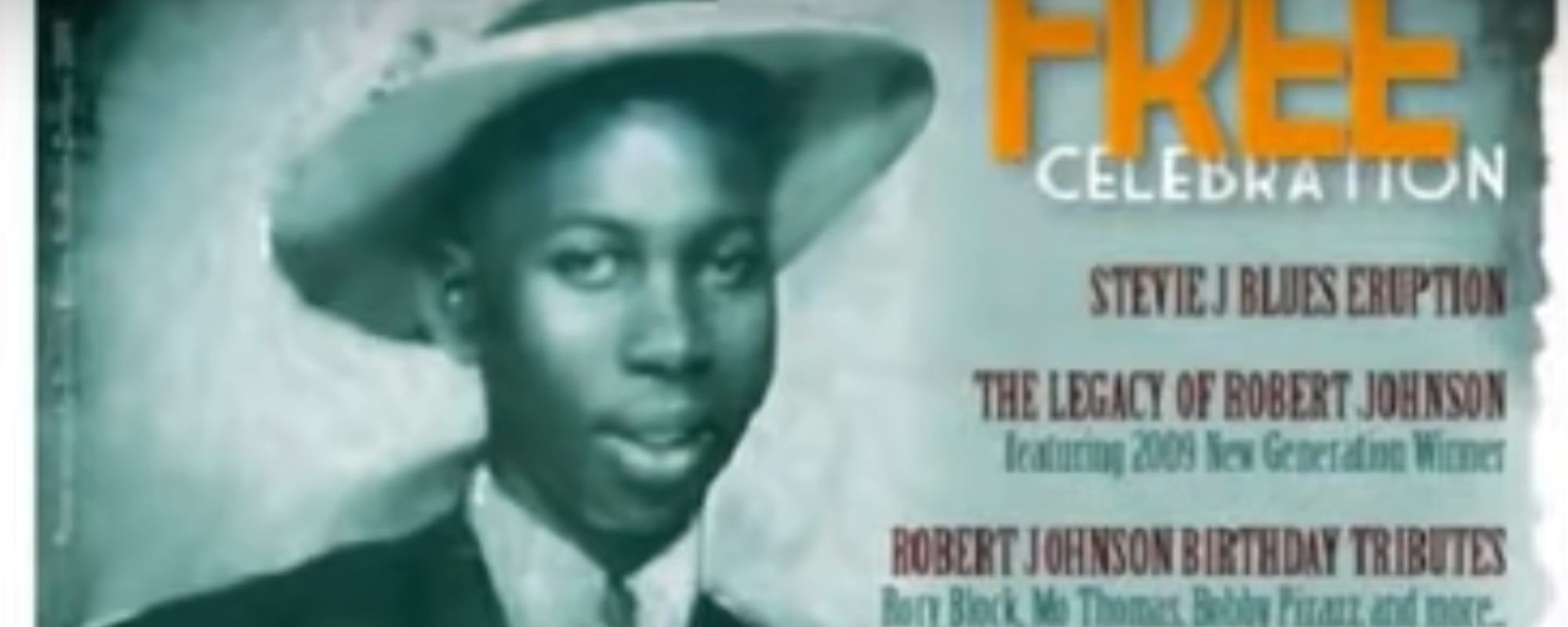On October 17th, 1992, New York City-based rock ‘n’ roll band, The Spin Doctors, released their hit song, “Little Miss Can’t Be Wrong.” The track, from their 1991 debut LP, Pocket Full of Kryptonite, peaked at #17 on the Billboard Hot 100. While the song is plucky, funny and has an accompanying music video that involves paint splattering and band antics, the meaning and origins of the song are quite serious. That meaning, however, was often lost on audiences in the 90s and early 2000s, says The Spin Doctors’ front man, Chris Barron. We caught up with Barron to ask him about writing the song, who it was about, why the song made a recent resurgence thanks to a viral tweet on Twitter and much more.
Videos by American Songwriter
When did you start to write the song, “Little Miss Can’t Be Wrong,” and what was it about?
That song is actually about my stepmom, my dad’s ex-wife. People always think it’s about an ex of mine but it’s actually about my dad’s ex, who I grew up with. She was actually a malignant narcissist, if that rings a bell. She was a really rough person to grow up with and she said I was going to be a guitar-playing janitor. There is actually a tweet about this that blew up a little while ago. I was looking through Twitter and someone said something like, “My English teacher said I’d never be a writer and now I have a book in the New York Times.” And I was like, “My stepmom said I was going to be a guitar-playing janitor – nothing wrong with that – and live in the basement of my high school and play guitar for the rats and I wrote a song about her and it’s called ‘Little Miss Can’t Be Wrong’ and it’s been played on the radio three-billion times!”
I remember that!
[Laughs] It’s a funny tune because so may people have claimed that it’s about them. And it just isn’t! And when the band first started playing it, I had just broken up with a girlfriend, who was a really, really – we’re still friends. She’s a sweet, sweet lady. Not a mean bone in her body. The tune was not about her, it just so happened I broke up with her and I wrote a tune about my stepmom. But when we first played it, everybody was super pissed off at me because they thought it was about Heather. I was like, “Dude, it’s not about Heather!” But it all worked out fine.
Did your stepmom hear it?
I don’t know. The last time I saw her was when I was moving to New York City with Blues Traveler. She was following me through the house, screaming at me to get out. I was grabbing the last of my stuff. The last I saw her, she was standing on our front step with her hair out, you know, all kind of like crazy with cold cream on her face and a terrycloth robe. She was screaming so hard that veins in her forehead were popping out. She was saying, “You’re going to die in a gutter! You’re going to die in a gutter!” It was heavy, man. It was really heavy. I think that one of the ironic twists of 90s music history was, you know, to some people who only know “Little Miss Can’t Be Wrong” or “Two Princes,” we’re sort of remembered as like this kind of emotionally light-weight, fluffy band. Especially in contrast to the other music that was going on, like grunge.
I’m fascinated by that dualism, that contrast.
But if you look at my lyrics and you look at The Spin Doctors, we’ve got stuff that’s just as heavy as Nirvana and Pearl Jam. We’ve got tunes on our first record, for example, like “Refrigerator Car” and “Shinbone Alley” that are very dark, emotionally, and pretty hard-hitting politically. We were as tough musically and philosophically as those guys ever were but we also had tunes that were, like, happy. But if you look at tunes like “Little Miss Can’t Be Wrong,” “Two Princes” and “Jimmy Olsen’s Blues,” it’s happy music with kind of dark lyrics. So, I’ve always found that kind of ironic. I was always like, we’re as dark as those guys. But we also had a more upbeat view on things, as well. Because I always felt, philosophically, if you write something and the point of view doesn’t offer the listener a way out, then it’s kind of useless. Anybody can observe and point out that the world is patently unfair and unkind and cruel. It doesn’t take a genius to look around and observe those things and to portray them. What’s difficult is to go the next step and to offer people – like, okay, if we live in a world where our leaders are corrupt and lying and we’re living in a system that’s patently unfair, then why would I be a good person or why should I continue to hope or live another day? If you can offer up something – I would contend that it’s of greater artistic merit to offer up something along those lines than to just offer up this nihilistic view of the world. Because it think that’s just kind of facile.
Do you have a favorite line from the song?
I like the line, “She want one man made of Hercules Cyrano.” Just because I like a good reference and I like the contrast of those two, this impossible composite character. I think the line packs a lot of meaning into just one phrase.
What do you love most about the song today?
I love that it’s kind of undergone a bit of a, like – in the 90s, I took some flack, people thought it was really kind of misogynistic. They didn’t really know what it was about and I didn’t really speak out about who it was about because she was still around. I didn’t want to cause any trouble or anything like that. So, I didn’t really talk about it much that it was about my stepmom. Since that tweet that went viral, it’s much more widely known that the song is essentially about a bully.
The song was written from the point of view of a kid who is at the mercy of a grownup who is, you know, being cruel and a bully. So, I like that people know that now. And I like that – you know, not everybody knows it. But a lot of people see the perspective. It’s a song that’s conceivably about a strong person shitting on somebody who is, like, conceivably an easy target. But I always loved that song because it’s a complete take down. And I love a take down song. [Laughs] It’s one of my pet types of songs that I really like writing. But when people know that the person speaking in the song is really the underdog and is speaking to someone who’s in a more powerful position than them, I think it adds to the song.
You write a song – a lot has been written about the intention of the artist and its significance to the work of art. And I contend that – I try to write very precisely and I try to make the message of what I’m writing say what I want it to say. And then you put the song out there and it kind of gets up and it walks away. It’s like the kid’s first day at school. They’re like, “Yeah, you can’t go past here.” The kid’s going to walk into kindergarten and what’s going to happen is going to happen. So, it’s been fun to watch these tunes grow up. Tunes change significance over time. So, it was nice watching that one get a little flutter of recognition and come a little closer to what I had initially intended it to be.









Leave a Reply
Only members can comment. Become a member. Already a member? Log in.